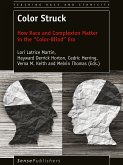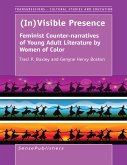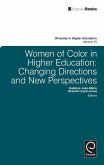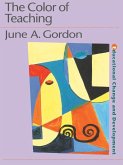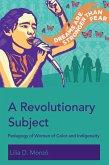Racism is still very prevalent and pervasive in all aspects of the P-12 educational experience in the United States. Far too many teachers and administrators continue to respond to this challenge by applying colorblind perspectives and approaches. This edited volume provides a broad and comprehensive critique of colorblindness in various educational contexts. In an attempt to advocate for a more color-conscious approach to education, this book deals with a wide range of issues related to teaching, learning, curriculum, creativity, assessment, discipline, implicit bias, and teacher education. There are three distinct features that make this book so important and relevant given the current social and racial climate in U.S. schools today. First, each chapter in this book draws from a plethora of different theoretical perspectives related to race and racism. In this sense, readers are equipped with variety of robust theoretical perspectives to better understand this complicated issue of racism in schools. Second, this book communicates issues of race and racism through multiple voices. Unlike other books on race and racism where the central voice is that of a researcher or scholar, this book centralizes the voices and perspectives of researchers, teachers, and teacher educators alike. As a result, readers are better able to understand issues of race and racism in schools from a more nuanced perspective. Finally, unlike other books related to race and racism in schools, this book provides readers with practical strategies for combating racism in their respective educational contexts.
Dieser Download kann aus rechtlichen Gründen nur mit Rechnungsadresse in A, B, BG, CY, CZ, D, DK, EW, E, FIN, F, GR, HR, H, IRL, I, LT, L, LR, M, NL, PL, P, R, S, SLO, SK ausgeliefert werden.



